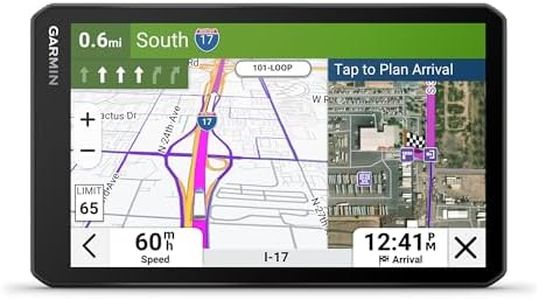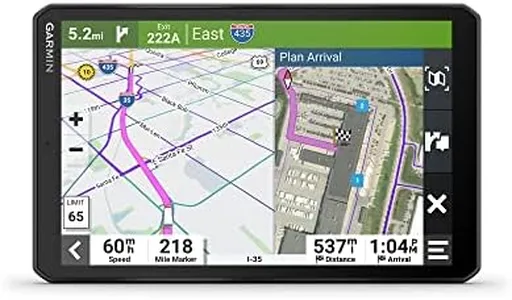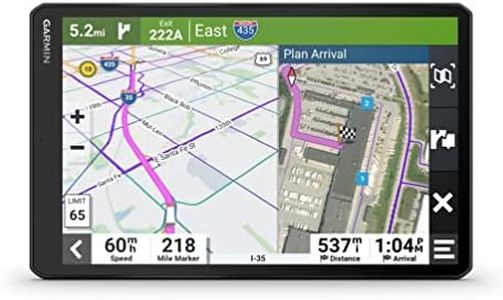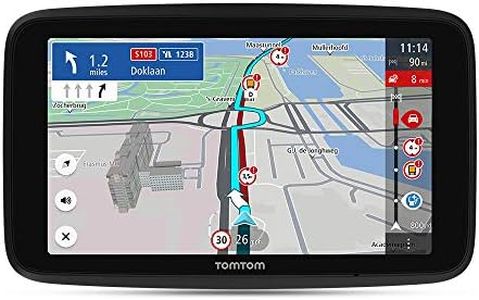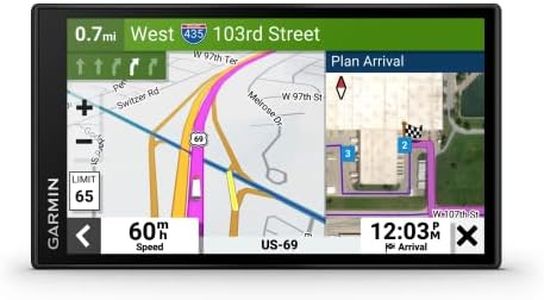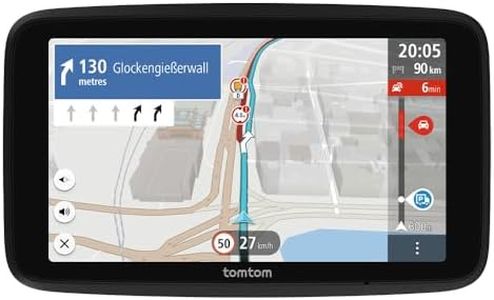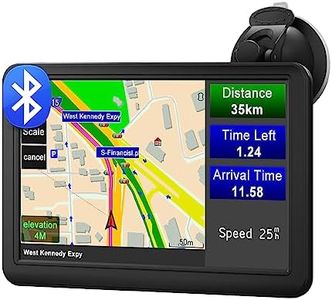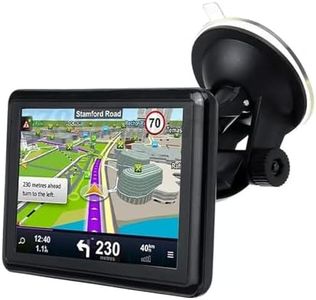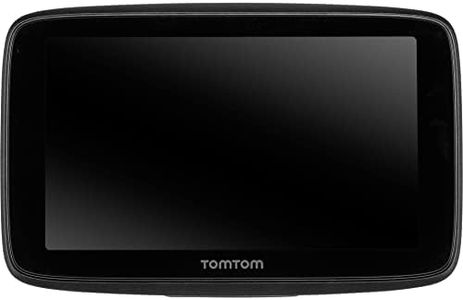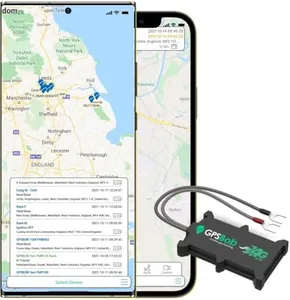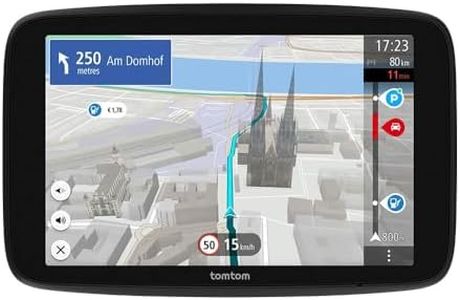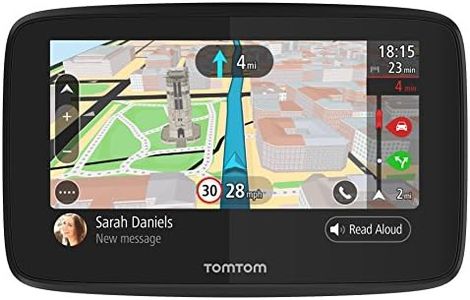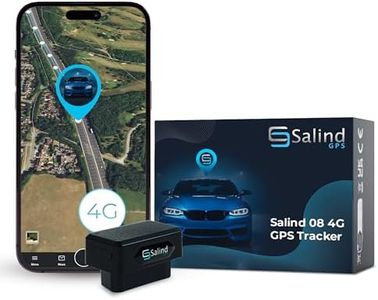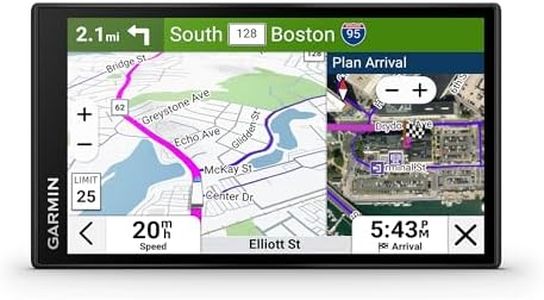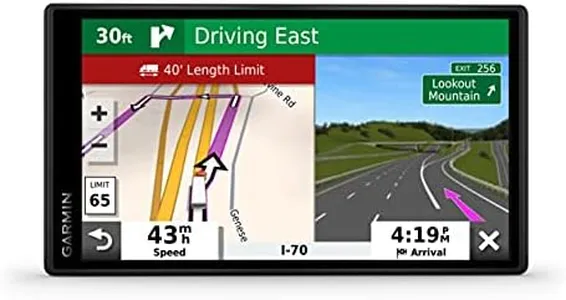We Use CookiesWe use cookies to enhance the security, performance,
functionality and for analytical and promotional activities. By continuing to browse this site you
are agreeing to our privacy policy
10 Best Truck Gps
From leading brands and best sellers available on the web.By clicking on a link to a third party's website, log data is shared with that third party.
Buying Guide for the Best Truck Gps
When choosing a GPS specifically designed for trucks, it's essential to focus on features and specifications that address the unique needs of truck drivers. Unlike standard car GPS units, truck GPS devices offer specialized route planning that considers vehicle size, weight limits, hazardous load restrictions, and other truck-related factors. By understanding the main specifications and how they relate to your driving and route planning needs, you can make a smarter choice that keeps you on safe, legal, and efficient roads.Screen SizeScreen size refers to the diagonal measurement of the display, usually expressed in inches. This is important as larger screens make it easier to read maps, directions, and important warnings at a glance, which is crucial for keeping your eyes on the road. Small screens, around 5 inches, offer compactness and easier dash placement, suitable for smaller truck cabs or those who prefer minimal intrusion. Medium screens, around 7 inches, balance readability and size. Larger screens, 8 inches or more, provide the clearest view but may require more dashboard space. Choose based on your cab size and your personal preference for visibility while driving.
Truck-Specific Route CustomizationTruck-specific route customization is the GPS system’s ability to factor in your truck’s dimensions, weight, and cargo when planning routes. This feature is crucial because trucks face road restrictions that don’t apply to smaller vehicles, such as bridge heights, weight limits, and hazmat rules. Some GPS units allow you to enter details such as height, length, width, weight, and even type of load. More advanced devices let you save multiple vehicle profiles. For safety and legal compliance, always choose a model that lets you input all relevant truck specs. This is especially important if you drive different trucks or haul various types of cargo.
Real-Time Traffic and Map UpdatesReal-time traffic and map updates keep your navigation data current by providing information about road conditions, closures, traffic jams, and new routes. This is important for planning efficient trips and avoiding delays or routes unsuitable for trucks. Some devices offer lifetime updates via Wi-Fi or smartphone connections, while others may require manual updates using a computer. Regular updates ensure you’re not following outdated directions or encountering newly implemented restrictions; for frequent or long-haul drivers, a GPS with automatic and frequent updates is generally the best choice.
Points of Interest (POI) for TrucksPoints of Interest (POI) for trucks include locations such as truck stops, weigh stations, repair shops, and rest areas that are relevant for truck drivers. Having a robust POI database tailored for trucks saves time and stress searching for suitable fuel stops, overnight parking, or maintenance options. Some devices even indicate which amenities (like showers or restaurants) are available. You should pick a device with a rich, regularly updated POI database, especially if you drive unfamiliar routes or travel across long distances where planning your stops is vital.
Voice Guidance and Hands-Free FeaturesVoice guidance and hands-free features let you interact with the GPS and receive spoken turn-by-turn directions, so you don’t need to look away from the road. It’s an important safety feature, especially for truck drivers who must stay alert. Basic systems offer standard voice navigation, while more advanced units support spoken address entry and Bluetooth hands-free calling. Consider your comfort with technology and how much time you spend on the road: frequent drivers or those in busy traffic will benefit greatly from advanced voice and hands-free functionalities.
Mounting and Power OptionsMounting and power options determine how and where you can install the GPS in your truck, and how the device is powered during use. Some GPS units come with suction cup mounts, adhesive pads, or custom brackets, and are powered either via cable to the vehicle’s cigarette lighter or a hardwired connection. It’s important because you want a secure, visible, and accessible placement without obstructing your view. Consider your dash space, the length of your trips, and if you’ll be moving the GPS between vehicles, so you pick a mounting and power solution that fits your daily routine.
